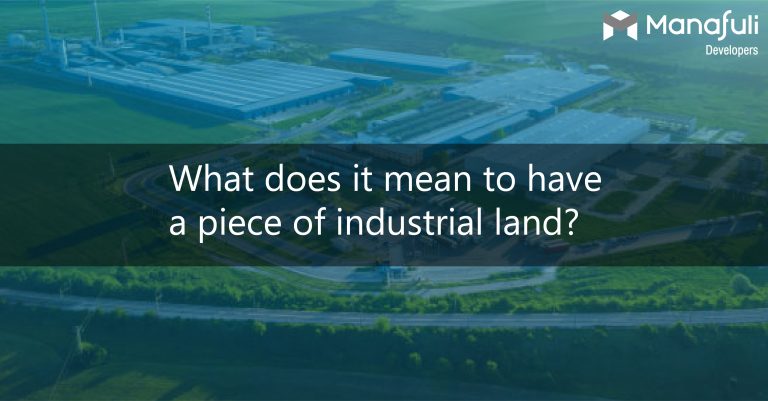Investing in Industrial Land: 10 Guaranteed Good Results for MSMEs
In today’s dynamic economic landscape, Micro, Small, and Medium Enterprises (MSMEs) play a crucial role in driving growth, fostering innovation, and generating employment. As these enterprises strive to expand and sustain their operations, strategic investments become essential. One such investment that holds immense potential is industrial land.
Just like Magna Star Industrial Park which offers plots for industrial purposes at the prime location of Dankuni extension.
This article, therefore will explore the myriad benefits that MSMEs can reap by investing in industrial land, highlighting why it is a wise and forward-thinking decision.
What does it mean to have an industrial land?

Before delving into the benefits, it is essential to understand what industrial land entails.
Industrial land refers to plots designated for industrial use, including manufacturing, warehousing, production facilities, and logistics. These areas are typically located in industrial zones with appropriate infrastructure to support industrial activities.
Now let’s look into the advantages.
1. Cost-Effective Expansion
For MSMEs, growth often necessitates physical expansion. One option is renting commercial spaces, which can be expensive and subject to frequent rent hikes.
On the other hand, if the MSMEs invest in industrial land such as Magna Star, it can provide a cost-effective alternative. By owning a piece of land, MSMEs can avoid recurring rental costs and instead invest in building or expanding their facilities to create a grade A logistics park as needed.
This long-term investment can significantly reduce operational costs over time.
2. Asset Appreciation
Real estate, including industrial land, tends to appreciate over time. So, when MSMEs invest in industrial land, they can benefit from this appreciation, adding substantial value to their balance sheets.
As urbanization and industrial activities increase, the demand for industrial land rises, driving up its value. Similar to Magna Star, which is surrounded by other occupied business parks leading to more industrial activities all around.
This appreciation can serve as a financial buffer, providing MSMEs with collateral for loans or a significant return on investment if they decide to sell the land in the future.

3. Customization and Control
Owning industrial land grants MSMEs complete control over their premises. They can design and build facilities tailored to their specific operational needs, ensuring maximum efficiency and productivity.
Additionally, owning the land allows MSMEs to make modifications and expansions without the constraints imposed by landlords or lease agreements.
4. Improved Logistics and Supply Chain Management
Strategically located industrial land, as that of Magna Star, can enhance logistics and supply chain management for MSMEs. This, in turn, provides proximity to transportation hubs, suppliers, and markets that help reduce transportation costs and lead times. This also contributes to better inventory management, quicker turnaround times, and improved customer satisfaction.
Magna Star also has enough space to build up smart warehousing contributing to much enhanced efficiency. Altogether, these advantages can give MSMEs a competitive edge in their respective industries.
5. Enhanced Stability and Security
Renting commercial spaces often comes with the uncertainty of lease renewals and potential evictions. This instability can disrupt business operations and lead to significant financial losses. However, by investing in industrial land, MSMEs secure a stable and permanent location for their operations. This stability allows them to focus on long-term planning and growth without the constant worry of relocation.
6. Financial Incentives and Support
Governments and local authorities often provide financial incentives and support to businesses that invest in industrial land. It’s much more like the initiatives of multi-modal logistics parks of the government.
These incentives may include tax breaks, subsidies, and grants aimed at encouraging industrial development and job creation. MSMEs can leverage these benefits to reduce their initial investment costs and improve their financial standing.
Additionally, being part of an industrial zone can provide access to shared resources and infrastructure, further lowering operational expenses.
7. Better Working Environment
Industrial zones are typically designed to accommodate businesses with similar needs, creating a conducive working environment. These zones often feature essential infrastructure such as roads, utilities, and waste management systems, specifically tailored for industrial use. So, with this benefit of industrial land, MSMEs can enjoy a shared infrastructure, which might be more advanced and reliable than what is available in non-industrial areas.
A better working environment can improve employee morale and productivity, contributing to the overall success of the business.
8. Opportunities for Collaboration and Networking
Another advantage is that industrial land is usually located in industrial zones, ideally like Magna Star. This places MSMEs in proximity to other businesses and industries which fosters opportunities for collaboration, networking, and business partnerships. MSMEs can benefit highly from knowledge sharing, joint ventures, and supply chain synergies. These interactions can lead to innovative solutions, new business opportunities, and a stronger presence in the market.
9. Scalability
As MSMEs grow, their operational needs evolve. Investing in industrial land offers the scalability required to accommodate this growth. With their own land in Magna Star, MSMEs can expand their facilities incrementally. This will add to new production lines, storage areas, or office spaces as needed.
10. Brand Image and Credibility
Lastly, owning industrial land and having a dedicated facility can enhance the brand image and credibility of MSMEs.
If we see the other way around, marketing expenses can be extremely expensive for MSMEs. Consequently, ownership of industrial plots can give them a marketing edge. It demonstrates a commitment to long-term growth and stability, which can attract customers, investors, and business partners.
A well-established presence in an industrial zone can also instil confidence in stakeholders. This contributes to their overall reputation and market position of the MSME business.

Conclusion
As you can deduce, investing in industrial land offers numerous benefits starting from cost-effectiveness to brand credibility. Hence, for MSMEs looking to future-proof their operations and achieve sustainable growth, industrial land investment is a smart and strategic move. It not only provides immediate operational benefits but also sets the foundation for long-term success and resilience in an ever-evolving economic landscape.


